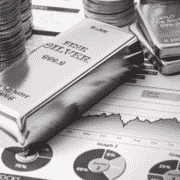London’s FTSE 100 UK:UKX stood out as a top performer among European markets on Monday, driven by escalating tensions in the Middle East. The resulting increase in oil prices propelled energy stocks and boosted the overall index.
According to Russ Mould, investment director at AJ Bell, oil prices tend to rise during periods of heightened tension in the region due to its significant oil reserves and production capabilities. This upward trend was expected.
Richard Hunter, head of markets at Interactive Investor, highlighted that the defensive and established constituents of the FTSE 100 provided a sense of stability and acted as a haven compared to other European counterparts. As a result, companies like BP and Shell experienced marked increases in their stock prices, benefiting from the surge in oil prices. Additionally, defense company BAE Systems saw a rise in stock value following the Middle Eastern turmoil.
In a parallel development, gold miners listed on the London Stock Exchange, including Centamin and Fresnillo, witnessed a boost in their stock prices as the value of gold rose above $1,850 per ounce.
Conversely, airlines faced setbacks as flight cancellations in the region affected their operations. International Consolidated Airlines, which encompasses British Airways, easyJet, and Wizz Air, among others, experienced a decline in their stock prices.
Overall, the FTSE 100 capitalized on the geopolitical tensions in the Middle East, benefiting from rising oil prices and the performance of its defensive constituents.
European Markets Experience Risk-Off Tone
The recent trading sessions in European markets have been marked by a risk-off sentiment. The DAX in Frankfurt decreased by 0.4%, while the CAC 40 in Paris saw a decline of 0.3%. Investors gravitated towards the perceived safety of German government bonds, resulting in a 3.7 basis points drop in the 10-year yield.
Euro and Pound Fall Amidst Geopolitical Stress
During times of geopolitical tension, it is not uncommon for investors to seek refuge in the US dollar. As a result, the euro and sterling both experienced a decline of approximately 0.5% each.
Metro Bank Shows Promising Performance
Metro Bank emerged as a notable performer in the equity market. The U.K. challenger bank witnessed a significant increase in its share price, surging around 20% from its recent lows. This improvement follows its agreement to raise £325 million ($395 million) and refinance £600 million in debt, effectively strengthening its balance sheet.
According to Susannah Streeter, head of money and markets at Hargreaves Lansdown, Metro Bank’s management views this development as a new chapter for the bank. However, further actions are anticipated to reduce its loan book and establish a more stable financial position. Discussions regarding the sale of a major portion of its mortgage book are still ongoing.
Given its branch network, which offers extended opening hours and a wider range of services compared to its competitors, Metro Bank incurs higher operating costs. Consequently, significant adjustments are expected to ensure the bank’s continued profitability.











Comments